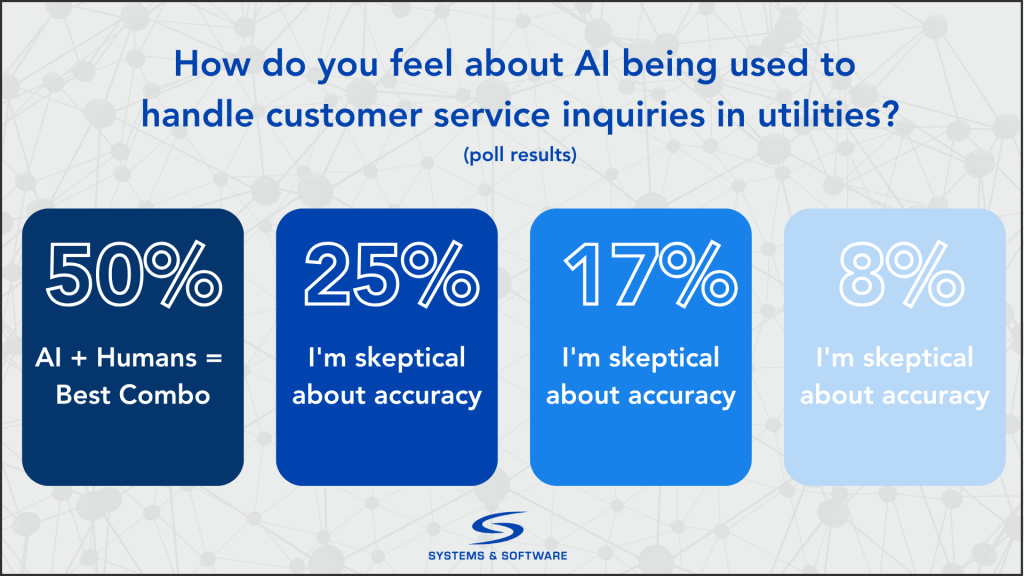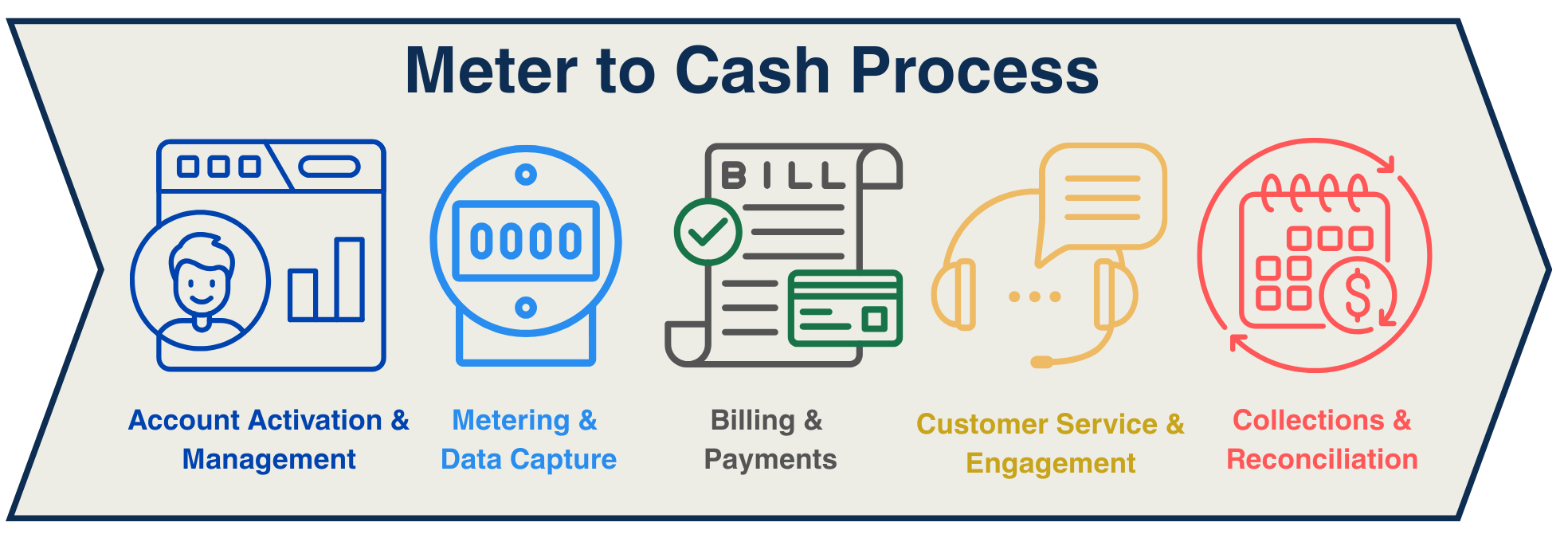Artificial intelligence is rapidly transforming customer service across industries, and utilities are no exception. With AI-powered tools offering 24/7 availability, faster response times, and personalized guidance, many utilities are exploring how to leverage this technology to better serve their customers. But are utility customers ready to embrace AI for handling their service inquiries?
We recently ran a LinkedIn poll asking this exact question:
“How do you feel about AI being used for handle customer service inquiries in utilities?”
Here’s a breakdown of the results from 12 participants:
- 50% — AI + humans = best combo
Half of the respondents see the future as a hybrid approach, where AI handles routine queries but humans remain involved for complex or sensitive issues. This balanced view acknowledges AI’s strengths in efficiency while valuing the empathy and judgment that only human agents can provide. - 25% — I’m skeptical about accuracy
A significant portion expressed concern over AI’s ability to provide consistently accurate answers. Large language models (LLMs) powering many AI tools aren’t perfect and can occasionally generate incorrect or misleading responses. For utilities, where billing accuracy and service reliability are critical, maintaining trust in AI-driven interactions is essential. This skepticism underscores the need for ongoing AI training, transparency, human oversight, and clear escalation paths to ensure any errors are caught and addressed promptly. - 17% — It’s essential and overdue
These respondents are enthusiastic about AI adoption and view it as a necessary step forward for utilities to modernize customer interactions, reduce wait times, and improve overall satisfaction. - 8% — Too soon to fully adopt AI
A smaller group feels it’s premature to fully embrace AI in customer service, likely reflecting concerns about technology maturity or customer readiness.
What This Means for Utilities
The poll results suggest a cautiously optimistic outlook toward AI in utility customer service. While there is strong support for AI augmenting human agents, trust and accuracy remain top concerns. Utilities should focus on implementing AI tools that enhance the customer experience without fully replacing human interaction. Features like intelligent routing, sentiment detection, and seamless escalation can bridge this gap.
Educating customers about AI capabilities and setting clear expectations will also be important in easing skepticism. As AI technology continues to improve and gain acceptance, utilities can gradually expand its role in handling service inquiries.
Final Thoughts
The future of utility customer service likely lies in collaboration between AI and humans—leveraging the speed and scalability of AI with the nuanced understanding of human agents. For utilities aiming to deliver exceptional service while managing costs, this combination offers the best of both worlds.







